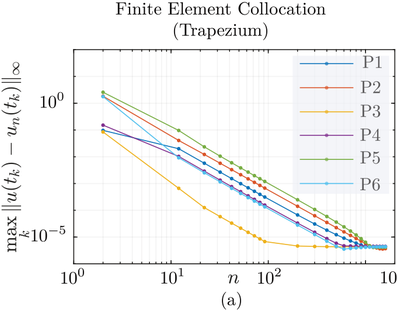The research interests in dynamical systems encompass various domains:
- Dynamics on Networks: We investigate the dynamical behavior of network-structured systems like neuronal networks, metabolic pathways, and power grids. The focus is on understanding the relationship between network architecture and dynamics, particularly synchronization phenomena.
- Dynamics and Data: We develop methods to decrease the uncertainty in dynamical systems using measurements (data assimilation) and employ dynamical systems concepts to extract information from datasets. Topological data analysis is applied to describe quantitative changes in the topology of datasets over time.
- Computational Dynamics: We develop methods for rigorous analysis of dynamical systems through computer calculations, combining functional analysis and computational Conley index theory. This approach leads to computer-assisted theorems, revealing properties inaccessible through traditional analysis.
- Topological Methods: We advance Morse-Conley-Floer theory to uncover profound connections between dynamical systems, partial differential equations, and geometry/topology. This includes applications to traveling waves in PDEs and finite/infinite-dimensional Hamiltonian dynamics inspired by mathematical physics.
- Applications in Biology: We collaborate with systems biologists and neuroscientists to investigate microbial behavior, understand pattern formation in neuronal networks, and develop new numerical and analytical approaches.
- Emergence of Patterns: We study unexpected emergent patterns resulting from the interaction of entities governed by simple nonlinear rules. Methods are developed to analyze dynamics in various systems, from atomic lattices to neuronal networks to atmospheric and oceanic eddies.
See the homepage of the for more information, including seminars, events, and the visitor's program.
